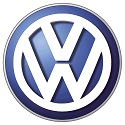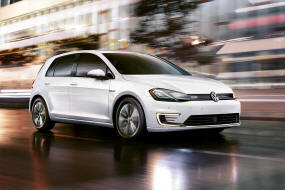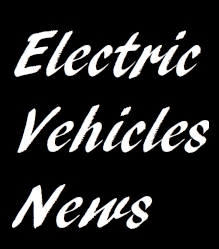 Volkswagen Group
Volkswagen Group
 Volkswagen e-Golf Battery Electric Car |
|
Volkswagen (German: shortened to VW, is a German automaker founded in 1937 by the German Labour Front, a Nazi labor union, and headquartered in Wolfsburg. Volkswagen translates to "people's car" in German. It is the flagship marque of the Volkswagen Group, the largest automaker by worldwide sales in 2016 and 2017. The group's biggest market is in China, which delivers 40% of its sales and profits. The Volkswagen brand is one of the world’s most successful volume carmakers. The Group’s core brand maintains facilities in 14 countries, where it produces vehicles for customers in more than 150 nations. Volkswagen Passenger Cars delivered a record 6.2 million vehicles worldwide in 2018 (+0.2%). The Volkswagen Passenger Cars vision is “Moving people and driving them forwards”. The “TRANSFORM 2025+” strategy therefore centers on a global model initiative through which the brand aims to lead innovation, technology and quality in the volume segment. Volkswagen Passenger Cars celebrated the world premiere of the new Touareg in the reporting year. With its expressive design, its extensive equipment, high-quality materials and top-class craftsmanship, it occupies a top position in the premium SUV segment. The brand also presented the T-Cross, a versatile, practical and urban crossover model, which is set to launch in 2019. In addition, it
unveiled the ID. VIZZION concept car, the electric-driven ID. family's new flagship. The saloon car of tomorrow is self-driving, effortless to operate thanks to augmented reality, and capable of learning through artificial intelligence. In September 2018, Volkswagen gave media representatives from all around the world a first glimpse of its platform strategy for electric vehicles. The aim of the Modular Electric Drive Toolkit (MEB) is to translate electric mobility into mass mobility at affordable prices. The all-electric ID. family based on the MEB will be manufactured in Zwickau from late 2019. Vehicles with all-electric drive will also roll off the assembly line in Emden. Volkswagen e-mobility of the future Volkswagen is driving e-mobility forward with a consistency and commitment unlike that of virtually any other automaker. By 2025, the Group plans to build and sell up to 3 million all-electric cars per year – depending on market developments. By then, there are to be over 80 new electric Group models, including 50 purely electric-powered vehicles. For its electric offensive, the Volkswagen Group is investing heavily in the mobility of the future: over €34 billion have been budgeted up to the end of 2022 for e-mobility, autonomous driving, digital connectivity and new mobility services. The joint ventures in China will be spending a further €15 billion on the electric offensive over the coming years. The Volkswagen brand in particular will be putting attractive models at affordable prices on the road, paving the way for the breakthrough of electric vehicles worldwide. The electric strategy is based on the modular electric drive matrix (MEB), a technology platform developed specifically for electric vehicles. Production of the Volkswagen I.D., the world’s first series vehicle based on the MEB, will begin in Zwickau at the end of 2019. September 2018 saw the dawning of a new era at Audi, too, when the carmaker unveiled the e-tron, its first electric series-produced vehicle. The e-tron offers Audi fans and customers a combination of driving pleasure and everyday usability. Anyone who has already sat in an e-Golf¹ or e-up!, an A3 e-tron or -Passat GTE and experienced the acceleration, the silent ride, and the ease of use will happily confirm that e-mobility really is quite something – and it’s happening right now. The transition from internal combustion engines to electric powertrains is often talked about as if it were an abstract principle, a topic for forecasts and visions. For Volkswagen Group brands and their customers, though, electric drives have been the real thing for quite some time now. Go -electric? Let’s go! Several all-electric cars and plug-in hybrids are already on sale, and many more developments are in the pipeline. CEO Matthias Müller -presented “Roadmap E,” the most comprehensive electrification initiative in the global automotive industry, in fall of 2017. By 2030 at the latest, Volkswagen Group brands will be offering at least one all-electric or hybrid version of their entire portfolio, comprising some 300 different models. Setting itself such a deadline is an unusual step in the automotive industry – and above all one that testifies to just how seriously the Group is taking e-mobility. “We are reinventing the car,” -Matthias Müller says. “To achieve this, we are making targeted investments to provide the necessary funds from our own resources.” The Volkswagen brand, for example, is currently developing the Modular -Electrification Toolkit (MEB). This is a vehicle architecture -optimized for e-mobility, which will serve as the basis for all -future electric vehicles in the -volume -segment. Audi and Porsche are -collaborating on the -Premium Platform -Electric (PPE) for the premium segment. In addition, the Group is -researching -battery potentials, -getting production ready for manufacturing electric vehicles – and taking responsibility for the customer experience in charging and the charging -infrastructure. One goal of the IONITY joint venture, launched in cooperation with other automotive -manufacturers, in November 2017 is to expand the vitally important network of fast charging stations along major routes across Europe. The project: It all began in 2016 with the all-electric I.D. concept car for the compact class (left). This was followed by the I.D. BUZZ electric van (center) and the I.D. CROZZ electric SUV (right). The trio was then showcased as a model family at the Los Angeles Auto Show in winter 2017. The family is designed for a range of between 500 (I.D. CROZZ) and 600 kilometers (I.D., I.D. BUZZ). The first model in this family, the compact-class I.D., is scheduled to go into production at the Zwickau plant in Saxony, Germany, at the end of 2019. The mission: Volume models like the Golf or Bulli have cult status – the electric chapter of the Volkswagen legend begins now. The project: One of the most frequently expressed reservations about e-mobility is the risk of not being able to find a charging station – or only finding the wrong kind – while traveling. Group Research is currently developing e-smartConnect, an automated e-filling station, in order to provide an optimal service in the future. The connector and the vehicle are linked via a special cable arrangement and the use of a -lightweight robot. Research on mobile charging robots is also underway. The mission: Volkswagen is working on innovative projects that address the critical issues associated with the charging infrastructure. |
